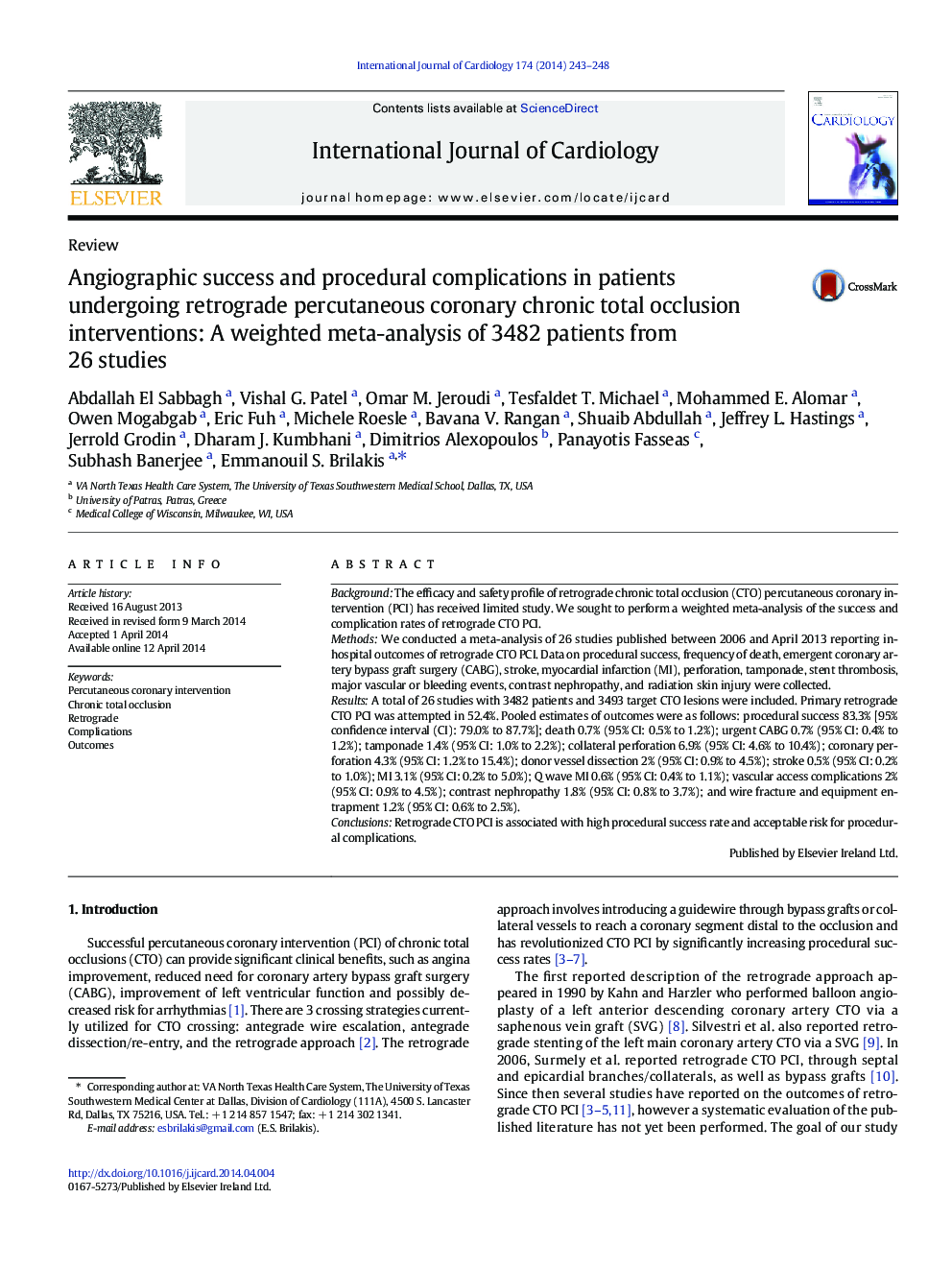| Article ID | Journal | Published Year | Pages | File Type |
|---|---|---|---|---|
| 5970172 | International Journal of Cardiology | 2014 | 6 Pages |
BackgroundThe efficacy and safety profile of retrograde chronic total occlusion (CTO) percutaneous coronary intervention (PCI) has received limited study. We sought to perform a weighted meta-analysis of the success and complication rates of retrograde CTO PCI.MethodsWe conducted a meta-analysis of 26 studies published between 2006 and April 2013 reporting in-hospital outcomes of retrograde CTO PCI. Data on procedural success, frequency of death, emergent coronary artery bypass graft surgery (CABG), stroke, myocardial infarction (MI), perforation, tamponade, stent thrombosis, major vascular or bleeding events, contrast nephropathy, and radiation skin injury were collected.ResultsA total of 26 studies with 3482 patients and 3493 target CTO lesions were included. Primary retrograde CTO PCI was attempted in 52.4%. Pooled estimates of outcomes were as follows: procedural success 83.3% [95% confidence interval (CI): 79.0% to 87.7%]; death 0.7% (95% CI: 0.5% to 1.2%); urgent CABG 0.7% (95% CI: 0.4% to 1.2%); tamponade 1.4% (95% CI: 1.0% to 2.2%); collateral perforation 6.9% (95% CI: 4.6% to 10.4%); coronary perforation 4.3% (95% CI: 1.2% to 15.4%); donor vessel dissection 2% (95% CI: 0.9% to 4.5%); stroke 0.5% (95% CI: 0.2% to 1.0%); MI 3.1% (95% CI: 0.2% to 5.0%); Q wave MI 0.6% (95% CI: 0.4% to 1.1%); vascular access complications 2% (95% CI: 0.9% to 4.5%); contrast nephropathy 1.8% (95% CI: 0.8% to 3.7%); and wire fracture and equipment entrapment 1.2% (95% CI: 0.6% to 2.5%).ConclusionsRetrograde CTO PCI is associated with high procedural success rate and acceptable risk for procedural complications.
